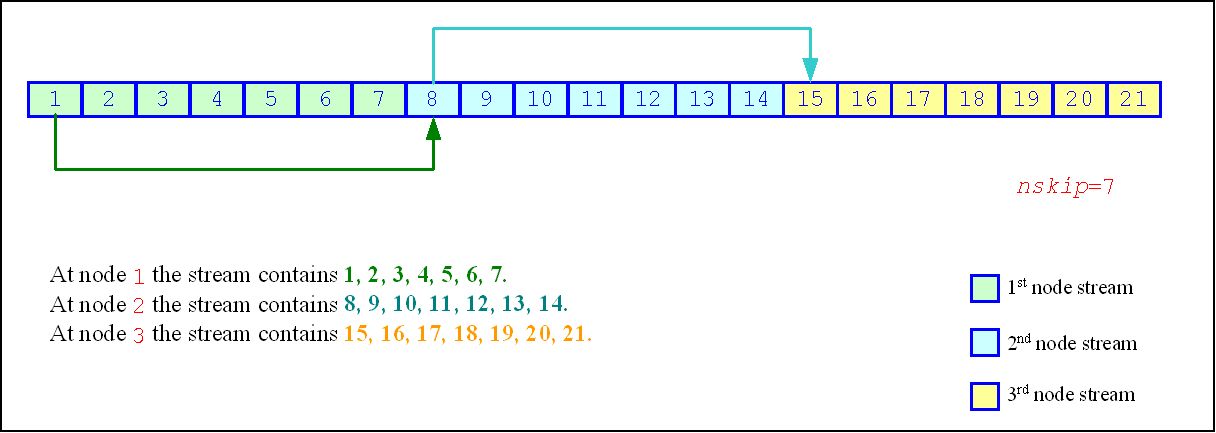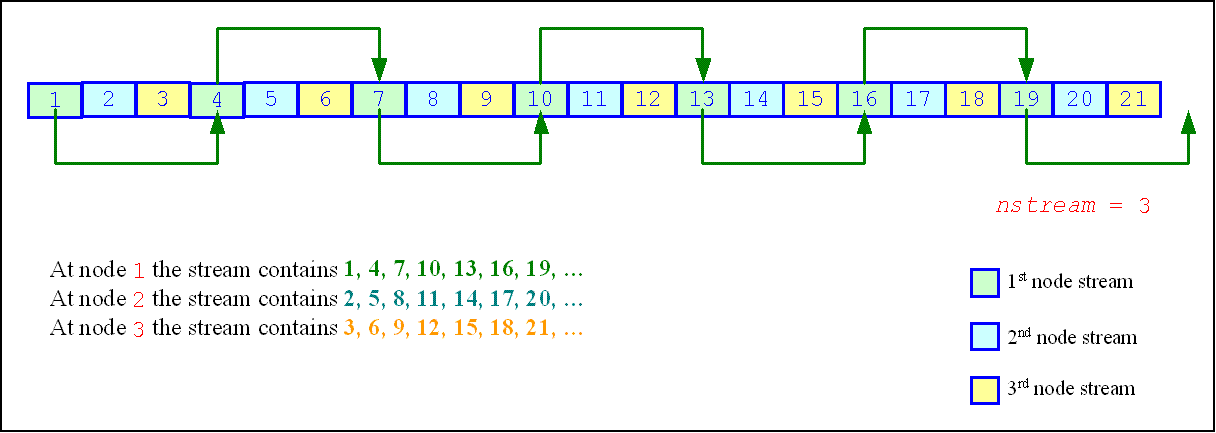Intel® C++ Compiler Classic Developer Guide and Reference
A newer version of this document is available. Customers should click here to go to the newest version.
Visible to Intel only — GUID: GUID-3C441F56-E526-4A34-B5DC-F19C94D84A8D
Visible to Intel only — GUID: GUID-3C441F56-E526-4A34-B5DC-F19C94D84A8D
Parallel Computation Support
One of the basic requirements for the random number sequences generated by the engines is their mutual independence and lack of inter-correlation. Even if you want random number samplings to be correlated, such correlation should be controllable. The Short Vector Random Number Generator (SVRNG) library provides two techniques: skip-ahead and leap-frog.
- Skip-ahead
-
The skip-ahead method splits the original sequence into k non-overlapping blocks, where k is the number of independent sequences. Each of the sequences generates random numbers only from the corresponding block of contiguous random numbers.

- Leap-frog
-
The leap-frog method splits the original sequence into k disjoint subsequences in such a way that the first stream would generate the random numbers x1, xk+1, x2k+1, x3k+1, ..., the second stream would generate the random numbers x2, xk+2, x2k+2, x3k+2, ..., and, finally, the k-th stream would generate the random numbers xk, x2k, x3k, .... The multi-dimensional uniformity properties of each subsequence deteriorate seriously as k grows so this method is only useful if k is less than about 25.

The following sequence outlines the typical usage model for creating independent sequences of random numbers in a parallel computation environment:
- Create the original engine
- Create a copy of the original engine in each thread
- Apply one of techniques above to re-initialize the individual engines to provide an independent sequence on each thread
For detailed information on the use of SVRNG intrinsics in a parallel computation environment see the Random Streams and RNGs in Parallel Computation section of the Notes for Intel® oneAPI Math Kernel Library Vector Statistics document listed in Intrinsics for the Short Vector Random Number Generator Library.
| Note: Currently skip-ahead and leap-frog methods are supported by the rand0, rand, mcg31m1, and mcg59 engines. The skip-ahead and leap-frog methods of splitting a stream are not yet implemented for the mt19937 engine, but mt19937 naturally provides parallel support during initialization. See the MT19937 section of the Notes for Intel® oneAPI Math Kernel Library Vector Statistics document listed in the introduction. . |
- svrng_copy_engine
Allocates memory for a new engine and copies over all parameters - svrng_skipahead_engine
Re-initialize engine parameters for use of the skip-ahead method - svrng_leapfrog_engine
Re-initialize engine parameters for use of the leap-frog method